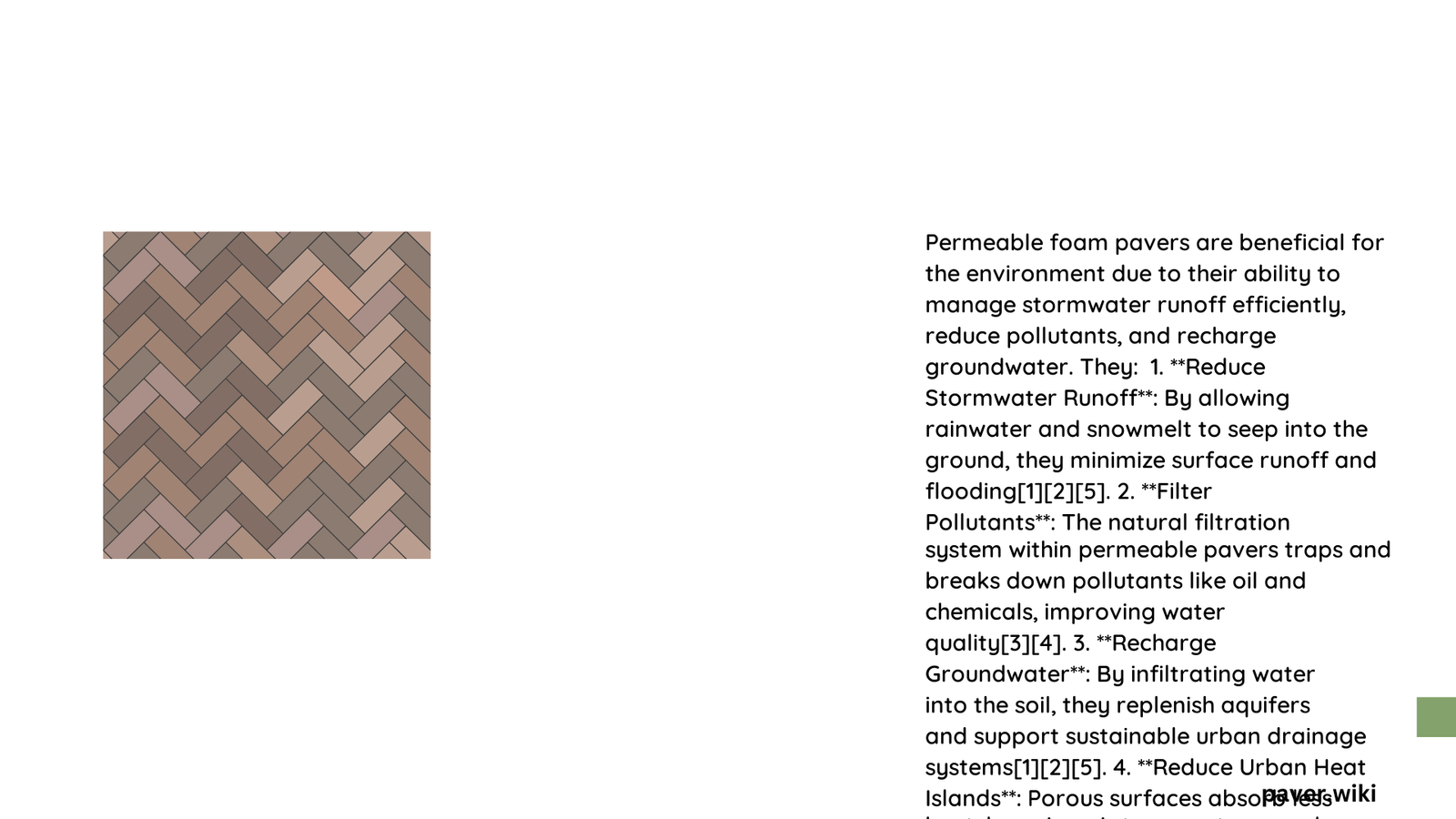Permeable foam pavers represent an innovative ecological solution transforming urban landscapes by offering remarkable environmental benefits. These advanced paving systems provide exceptional water management capabilities, reducing runoff, mitigating urban heat islands, and supporting groundwater recharge through intelligent design that allows water to seamlessly infiltrate through specialized materials, creating a sustainable infrastructure approach that addresses multiple environmental challenges simultaneously.
What Makes Permeable Foam Pavers Environmentally Significant?
How Do Permeable Foam Pavers Manage Stormwater?
Permeable foam pavers excel in stormwater management through unique structural characteristics:
- Rapid Water Infiltration: Allows immediate water penetration
- Reduced Surface Runoff: Minimizes flooding potential
- Natural Filtration: Filters pollutants before groundwater absorption
| Stormwater Management Metric | Performance Indicator |
|---|---|
| Water Infiltration Rate | 3-5 gallons per minute/sq. ft |
| Pollutant Reduction | Up to 90% sediment removal |
| Flood Prevention | Significant urban runoff mitigation |
What Environmental Benefits Do Foam Pavers Provide?
Foam pavers deliver multifaceted environmental advantages:
- Groundwater Recharge
- Replenishes underground water sources
- Maintains natural hydrological cycles
-
Reduces strain on municipal drainage systems
-
Urban Heat Island Mitigation
- Reflects solar radiation
- Enables surface cooling through water evaporation
-
Lowers ambient temperature in urban environments
-
Sustainable Material Composition
- Often manufactured using recycled materials
- Reduces carbon footprint
- Supports circular economy principles
Can Permeable Foam Pavers Improve Water Quality?
Permeable foam pavers act as sophisticated ecological filters:
- Trap sediments and pollutants
- Prevent contaminants from entering water systems
- Promote natural water purification processes
- Enhance overall urban water ecosystem health
What Are the Long-Term Environmental Impacts?
The environmental benefits of foam pavers extend beyond immediate water management:
- Durability: Designed for 20-30 years of sustainable performance
- Reduced Maintenance: Minimal infrastructure intervention required
- Ecosystem Support: Creates habitat-friendly urban surfaces
- Climate Resilience: Adapts to changing environmental conditions
How Do Foam Pavers Compare to Traditional Paving?
| Parameter | Foam Pavers | Traditional Pavement |
|---|---|---|
| Water Permeability | High | Low |
| Pollutant Filtration | Excellent | Minimal |
| Heat Reflection | Superior | Poor |
| Recyclability | High | Limited |
What Challenges Exist in Foam Paver Implementation?
While environmentally beneficial, foam pavers face implementation challenges:
- Higher initial installation costs
- Specialized technical expertise required
- Site-specific geological considerations
- Regular maintenance for optimal performance
Conclusion

Permeable foam pavers represent a sophisticated, environmentally responsible infrastructure solution that addresses multiple ecological challenges. By integrating advanced materials science with sustainable design principles, these innovative pavers offer a promising pathway towards more resilient, adaptive urban environments.
